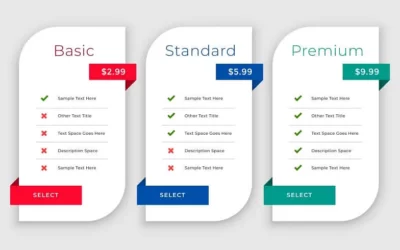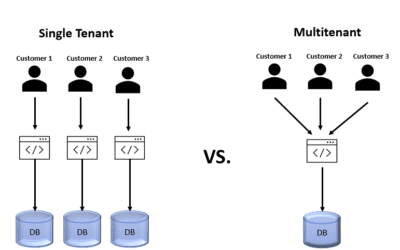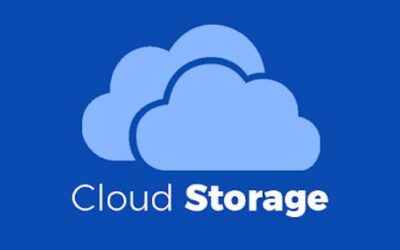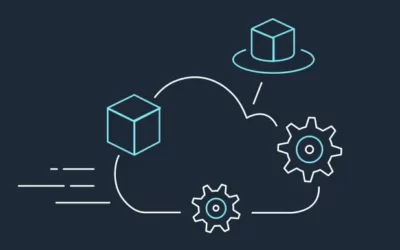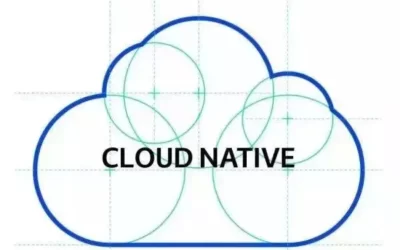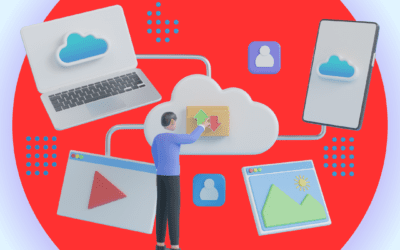The cloud can help reorganize how software is managed and ease the burdens of budgeting and efficiency. Cloud management software helps envision that.
Cloud
Cloud computing is the on-demand availability of computer system resources, especially data storage and computing power, without direct active management by the user.
Top CI/CD Tools to Use in App Development
Modern software development requires continuous maintenance over the course of its operational lifespan in the form of continuous integration (CI) and continuous deployment (CD). It is tedious work, but helps developers worry less about critical breakdowns. Automating this cycle provides an easier means by which rollbacks can occur in the case of a bad update while providing additional benefits such as security and compliance functionality.
What is Tiered Pricing for Software as a Service?
Tiered Pricing is a method used by many companies with subscription models. SaaS companies typically offer tiered pricing plans with different services and benefits at each price point with typically increasing benefits the more a customer pays. Striking a balance between what good rates are and the price can be difficult at times.
The Most Popular Cloud Cost Optimization Tools
Cloud environments and their pricing models can be difficult to control. Cloud computing does not offer the best visibility and it is easy to lose track of which price control factors are having an impact on your budget. Having the right tools can help put value to parts of an environment and provide guides on how to better bring budgetary issues back under control.
Single-Tenant vs. Multi-Tenant Cloud Environments
Operating a cloud environment and optimizing Software as a Service can be managed in two different methods. Reasons for adopting either single-tenant or multi-tenant cloud environments are dependent on business and customer-related factors as well as how much more expensive one architectural structure will be over the other. Both structure types also have a number of security and privacy implications tied to their inherent design.
A Comprehensive Look at Cloud Storage Pricing
Having Cloud Storage helps to synchronize key documents between remote workers and to manage data as needed. Cloud services provide a number of features that let users scale contents as they need to and protect storage contents with. Regardless of platform or device type, contents can be accessed by all users who can share that cloud storage. The vendors that provide cloud storage services each have their own features that make them ideal for specific users.
AWS Migration Acceleration Program
The AWS Migration Acceleration Program is offered to help organizations migrate existing applications and workloads to the Amazon Cloud more efficiently. This includes tools, resources, and guidance about the best practices for migration and how to facilitate changes properly without disrupting business operations.
Optimizing DevOps for Cloud-Native Applications
Running DevOps on the cloud is a matter of orienting the developer team to be more receptive to how the advantages of the cloud will be applied. The automation and scaling features of the cloud can significantly develop velocity significantly. There are a number of principles to consider when implementing this type of strategy.
Top 10 Cloud Providers in 2025
Explore the leading cloud service providers poised to redefine the technological landscape in 2025. In this article, we delve into the fundamentals of cloud computing and introduce you to the visionary companies shaping the future of cloud technology.
Before the proliferation of cloud platforms and virtual servers, organizations grappled with the limitations of on-premises servers, leading to extended service outages and data vulnerability. The advent of cloud computing revolutionized this paradigm, offering a robust solution accessible from any location at any time.
Dell APEX Cloud vs. DigitalOcean
Cloud services are numerous in type and functionality, leaving potential users with no shortage of choice as to what cloud service they wish to use and why. While not as widely known or capable of some of the same potential as their bigger competitors, Dell and DigitalOcean have their own offerings for cloud computing. Despite their more niche use and more fitting application for much smaller users, keep in mind that the likes of AWS and Google Cloud will just be more flexible and likely more capable in the long-run.



